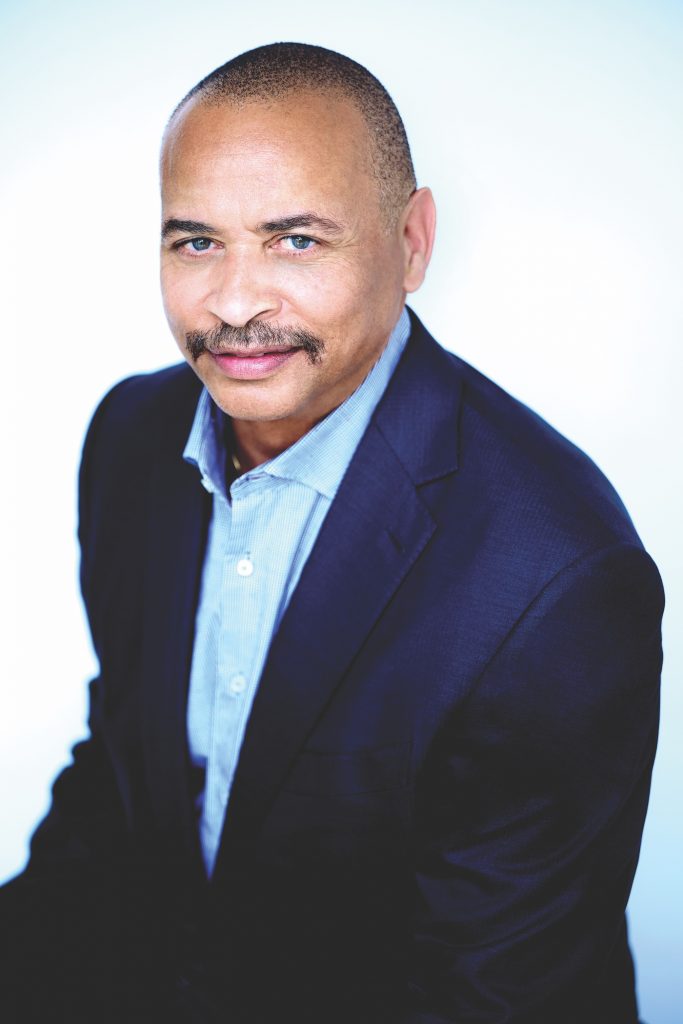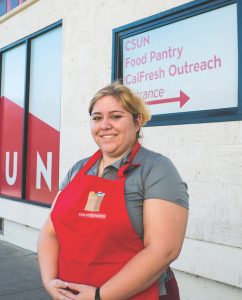Not Letting Life Circumstances Inhibit his Ambition

When a Minneapolis policeman killed George Floyd in 2020, William J. Briggs II, like millions of Americans, was appalled. But he wasn’t entirely surprised. Growing up Black in South Central Los Angeles in the 1960s had given him an early education in police mistreatment of minorities.
Days later, he agreed to accompany his daughter to a Black Lives Matter protest in Santa Monica, figuring it would be peaceful. And it was. The sit-in ended after someone shouted, “Defund the police!” and officers told the crowd to disperse. On the drive home, Briggs got a call from his brother, an LAPD officer, informing him that looting had erupted elsewhere in Santa Monica. “It was devastating,” Briggs says. Racial unrest convulsed L.A. for days.
Another call came about a month later. This time, a friend and former member of the Board of Police Commissioners asked him if he would consider joining the powerful civilian panel that oversees one of the largest forces in the country. Briggs, a civically active, successful entertainment lawyer, was skeptical. He didn’t support defunding the police, but he came around because he supported other reforms he believed could heal L.A. by benefiting both the police and the community. He accepted Mayor Eric Garcetti’s nomination and joined in December 2020.
“It’s my way of giving back to the city that raised me and made me who I am,” Briggs says.
Police discrimination wasn’t the only social ill he witnessed in his youth. Alcoholism, drug addiction, domestic abuse and, yes, crime tore families apart and starved children of stability. His single mother recognized the importance of education and sent him to parochial school until 10th grade, when she could no longer afford it. Public school was a step down, but he resolved to succeed, nevertheless.
Fortunately, Briggs had some guardian angels. His biology teacher spotted his talent and helped him get a job in a UCLA laboratory. His boss there opened his eyes to Armenian culture and the idea that “you don’t have to let the circumstances of your life inhibit your ambition.” Briggs’s aunt, the civil rights leader Dorothy Height, steered him to Bethune-Cookman College, a Historically Black College in Florida. Then, two lawyers in Washington, D.C., encouraged Briggs, their young paralegal, to apply to Georgetown Law School, where they were adjunct professors.
As he built his career as a trial lawyer representing high-profile entertainment and sports figures, Briggs stayed connected to his inner city roots, particularly interested in issues like the plight of children. For more than 20 years, he has been active with the Alliance for Children’s Rights, a nonprofit that focuses on adoption and foster care for at-risk youth.
Briggs was introduced to another organization that spoke to him on many levels, starting with its name: “I Have a Dream” Foundation. It provides underprivileged elementary school students with mentors, activities and reinforcement they don’t get at home – and sticks with them through high school. Students helped by the foundation have a remarkable 90% graduation rate. They often struggle with culture shock in college, so the nonprofit has extended its mentorship program to ensure they don’t drop out.
As a member of the Venable Foundation, the charitable arm of the firm where he is a partner, Briggs has championed both nonprofits, supporting them through grants and his own and Venable’s pro bono services. He now chairs the foundation’s L.A. branch, overseeing dozens of local grants a year. The pandemic prompted large, emergency gifts to address racial justice and food insecurity. “It was just heart wrenching to see people in food lines,” he says.
Violent crime has also surged since the pandemic began. That has strained the police and renewed demands to reform a force with a track record of, among other shortcomings, racial profiling and brutality. Mixed messages after George Floyd’s murder complicated the task of repairing rifts with communities of color: LAPD Chief Michel Moore knelt in solidarity with BLM protestors, but later equated rioters with the officers responsible for Floyd’s death. Public backlash forced him to apologize.
Briggs got to work as vice president of the five-person Police Commission, a time-consuming and intellectually challenging volunteer position. He committed himself to visit all 21 LAPD field divisions, starting in South L.A., the most active – and his most familiar – turf. As a teenager, he had suffered a common humiliation, dubbed Driving While Black. A white cop (not with the LAPD) pulled him over, handcuffed him, sat him on the curb and eventually released him. No ticket was issued, only an order to never return to that area.
Visiting South L.A. as a commissioner, Briggs was approached by a young officer, who appealed for more after-school activities that would keep youth out of trouble and give police a support role to develop positive interactions. “This is a white guy in a Black neighborhood,” Briggs says emphatically. “That told me there is hope.” Many officers in other divisions expressed a similar desire to play a constructive role. A top priority for Briggs is expanding the LAPD’s Community Safety Partnership Bureau, a program to build trust in minority communities.
He’s not naïve about the hurdles to changing LAPD culture and operating practices, but he says there has been progress on measures to hold officers accountable and reduce their role in incidents involving the mentally ill and the homeless. Crucially, he is advocating for more training so, when possible, officers can de-escalate armed confrontations without using deadly force and reduce non-lethal force when, say, breaking up protests.
Enhanced training is expensive. But over the long run, it may save the city grief and money, Briggs argues. It might have prevented a rash of lawsuits seeking damages over officer shootings and actions during the BLM protests. “We can either spend millions of dollars now to train officers or hundreds of millions of dollars in settlements later.”
Despite the pressure and public scrutiny, Briggs enjoys serving on the Police Commission, saying, “I want to be a partner in the effort to make long-lasting changes that I think will be impactful.”
Securing a safer, more-just future requires rectifying indignities of the past. In 1900, the LAPD fired its very first Black officer, after a white teenager accused him of sexual assault. He was acquitted in 1907, but the LAPD didn’t take him back. Until more than a century later. In March 2020, the Police Commission reinstated Robert William Stewart – thanks to an effort spearheaded by none other than William Briggs.
